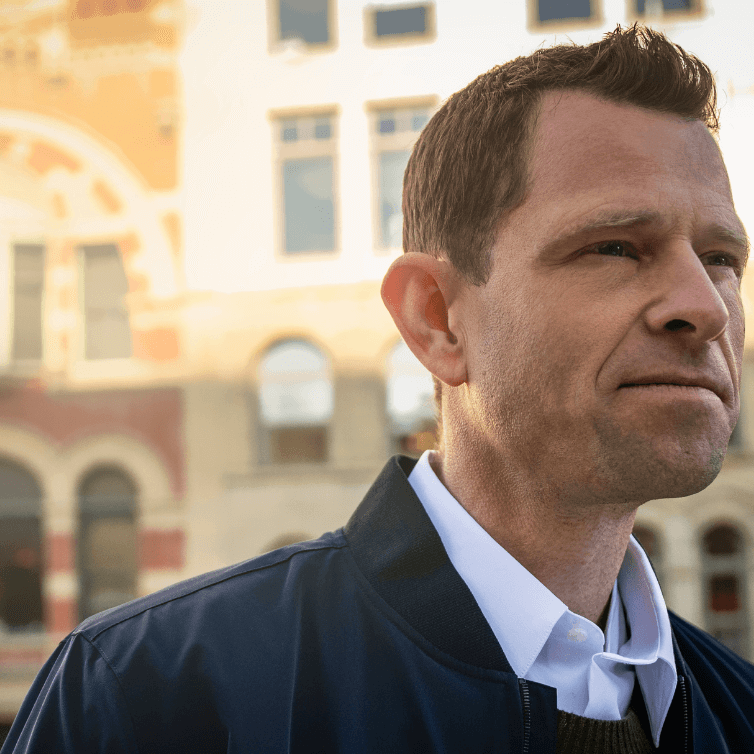This article is “sponsored content” as defined by Corporate Knights’ content disclosure policy.
Kevin Nilsen, president and CEO of ECO Canada, is on a mission. While recent research shows that Canada ranks first worldwide in cleantech R&D and innovation, it lags behind – at 16th on the list – in commercialization and revenue generation. Nilsen wants to make sure Canada isn’t known just for its good ideas, but for getting those ideas to market.
Corporate Knights recently sat down with Nilsen to talk about the work ECO Canada is doing in developing a deep workforce for the cleantech space and why that encompasses not only new talent, but also experienced mid-career professionals keen to transition or upskill.
A History Of Great Innovators
Canadians have been losing out on the revenue-generating potential of commercializing good ideas all the way back to the inception of electricity. Thomas Edison may be credited with inventing the lightbulb, but Nilsen points out that it was in fact two Canadians that invented and developed it, but sold the patent to Edison.
“Canada is great at generating ideas and developing them into promising technologies, but we’re behind other countries in getting those ideas to market. We need to flip this if we want to make the most of this global clean innovation opportunity,” Nilsen says. ECO Canada, known as a steward for the Canadian environmental workforce, recently released its own industry report which revealed the cleantech industry was expected to more than double from $1.2 trillion to $2.5 trillion by 2022 – a figure it’s still expected to hit despite the economic implications of the COVID-19 pandemic.
For close to 30 years, ECO Canada has worked to help grow and support Canada’s environmental workforce by providing insight just like this. And gaps like those identified in the report are where ECO Canada steps in. “We are working hard to influence the sector, government funding, and investors to ensure Canadian innovations are capitalized on here, and not bought or copied elsewhere. With the talent, educational facilities, government support, and major resource-related projects across the country, we have potential to become a market leader,” says Nilsen.
Helping Talent = Helping Industries
The goal of cleantech solutions is to find ways to do things more sustainably using fewer resources, whether that means reducing operational costs or being more energy efficient. And cleantech in action can take many forms: sustainable natural resource management, green building development, sustainable transportation solutions, oil and gas extraction, and waste reduction/lifecycle management, to name a few.
Approximately 282,000 jobs were attributable to environmental and clean technology activity in 2017, according to Statistics Canada’s Environmental and Clean Technology Products Economic Account, representing 1.6% of overall employment in Canada.
These are promising figures, but Nilsen notes a new challenge: employers are already struggling to fill a number of cleantech positions. From designers to business and marketing professionals to environmental technicians, drivers and machine operators, there’s an obvious knowledge and skills gap that must be closed, he says. “First on the list for us is to develop training solutions and career resources to ensure qualified workers are available to support the sector’s growth and build the world’s leading cleantech workforce, whether that be young graduates or mid- to senior-level workers who need to upskill.”
It’s not just technical skills that are required, either. Mastering so-called soft skills like managing budgets, writing technical reports, managing projects and developing competent marketing teams is just as important, Nilsen says. “We know we’ve got a competent workforce capable of innovative thinking, but are they revenue hungry? Do they know how to sell and market a product? That’s what we need to work on. Recruiting new talent and training existing workers to understand the journey from research and idea generation to a profitable product, ready for commercialization in the global market – that’s the task at hand.”
Jacques Benoit is Vice President of Strategy and Business Development at WSP, a company that works with ECO Canada to maximize opportunities for their environmental professionals through ECO Canada’s Employment Program. He says research like the cleantech report is not just eye-opening – it’s encouraging, too.
“Insights like these further cement the tremendous opportunity cleantech presents for employment, business opportunities and wealth that could be generated right here in Canada. As a company committed to weaving sustainability practices into our operations and projects across the world, WSP is encouraged by the work ECO Canada is doing to ensure the continued growth and prosperity of the cleantech sector in this country,” he says.

What’s Next
Looking ahead, it’s about keeping up the work ECO Canada is already doing, says Nilsen. “By continuing to study, monitor and report on the cleantech labour market, we can improve industry access and career advancement opportunities for new graduates, as well as experienced practitioners.”
“The government’s 2017 budget included more than $2.3 billion to boost growth in Canada’s cleantech space. We must make the most of this opportunity and train our workforce to shift their thinking from idea generation alone to innovation and commercialization as a pair. My hope is that one day, we see Canada move from 16th place to holding the joint number-one spot for innovation and revenue generation. It’s more than possible,” he says.


